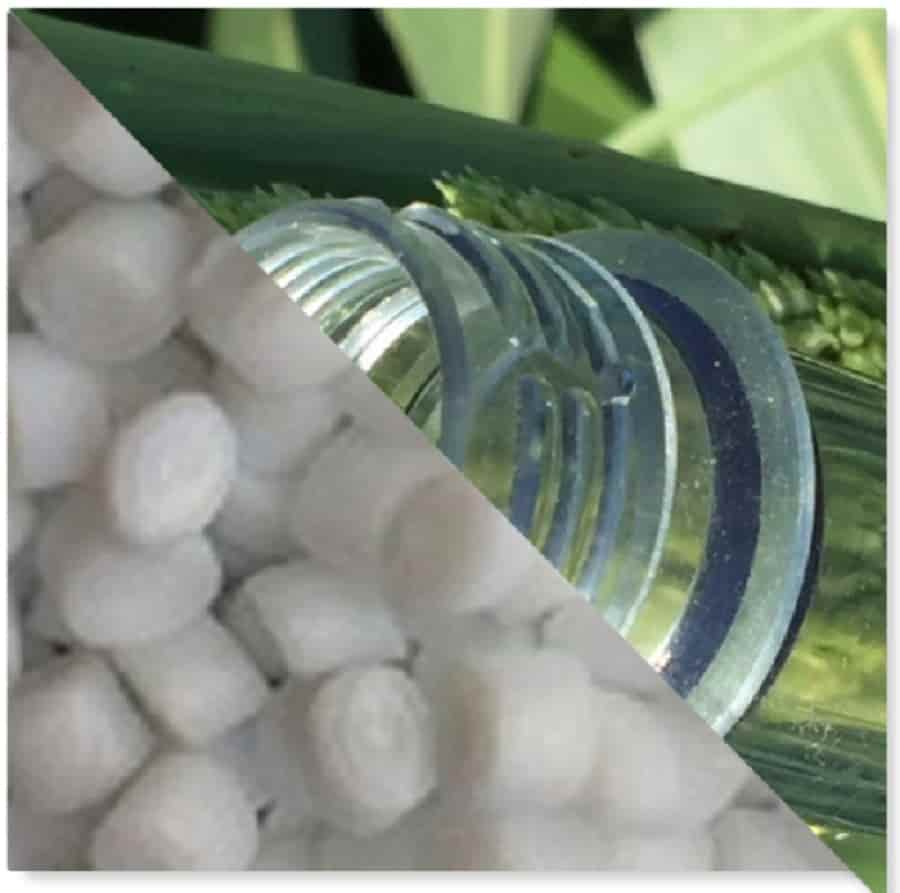Renewable Thermoplastics Petrochemicals 01-11-2021 - Arhive
Renewable Thermoplastics Petrochemicals
Polyamide Petrochemicals Polypropylene
Crude Oil Prices Trend

Achieves enhanced look for denim with eco-friendly credentials
Lenzing, Austria – The Lenzing Group‘s new Tencel branded lyocell fibers reduce the shine of conventional lyocell denim fabrics.
And importantly, this new development – dubbed Matte Tencel – maintains the benefits and eco-credentials of standard Tencel Lyocell fibers.
Via Matte Tencel, the company said it is expanding its sustainable offering for the denim industry with this new fiber type specially designed to scatter light and permanently diminish sheen in denim applications, and further enabling versatility of indigo-dyed denim fabrics.
“Our partners wanted the option to choose denim fabrics that are less shiny, and we listened,” explained Tricia Carey, Director of Global Business Development Denim and Americas, Lenzing AG. “By implementing an innovative production process to create matte Tencel Lyocell fibers, we are setting a new standard for indigo applications.”
Made with a resource efficient closed-loop production process, the new fiber type balances function and fashion, the company noted.
-Lenzing, Austria – The Lenzing Group‘s new Tencel branded lyocell fibers reduce the shine of conventional lyocell denim fabrics.
And importantly, this new development – dubbed Matte Tencel – maintains the benefits and eco-credentials of standard Tencel Lyocell fibers.
Via Matte Tencel, the company said it is expanding its sustainable offering for the denim industry with this new fiber type specially designed to scatter light and permanently diminish sheen in denim applications, and further enabling versatility of indigo-dyed denim fabrics.
“Our partners wanted the option to choose denim fabrics that are less shiny, and we listened,” explained Tricia Carey, Director of Global Business Development Denim and Americas, Lenzing AG. “By implementing an innovative production process to create matte Tencel Lyocell fibers, we are setting a new standard for indigo applications.”
Made with a resource efficient closed-loop production process, the new fiber type balances function and fashion, the company noted.
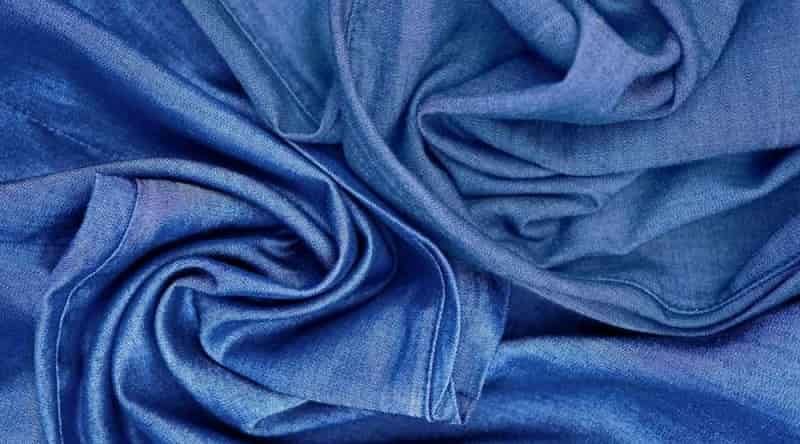
-US to levy ADD on polyester textured yarn from 4 Asian nations
The US department of commerce has announced its final determinations that imports of polyester textured yarn from Indonesia, Malaysia, Thailand and Vietnam are being unfairly sold below their fair value in the US. The department has thus calculated antidumping duty (ADD) cash deposit rates that range from 2.58 per cent to over 56 per cent.
As a result of the final determinations, U.S. Customs and Border Protection will continue to collect antidumping duties in the amount equal to the final dumping cash deposits rates for imports from each producer or country. Importers will be required to post duty deposits at these ADD rates on the date the final determinations are published in the Federal Register, in approximately one week. Renewable Thermoplastics Petrochemicals
The next step in the trade cases will be the US International Trade Commission’s (USITC) final determination of whether imports from the four countries are a cause of material injury or threaten to materially injure domestic polyester textured yarn producers. The USITC is currently scheduled to announce its final determination on November 30, 2021.
The lead counsel for the domestic industry, Paul Rosenthal of Kelley, Drye & Warren, LLP, commented, “The commerce department’s decisions are a big step in the right direction for the US companies and workers who are now closer to getting relief from the unfairly traded imports that have jeopardised the industry. The companies and workers are grateful for the hard work of the commerce department. We hope for a similarly favourable decision from the USITC so that more workers can return to their jobs in this important industry.”
In October 2020, two major US synthetic yarn producers – Unifi Manufacturing, Inc and Nan Ya Plastics Corporation, America – filed petitions with the commerce department and the USITC alleging that dumped imports of polyester textured yarn from Indonesia, Malaysia, Thailand and Vietnam were causing material injury to the domestic industry. The commerce department initiated the investigations in November 2020, and the USITC preliminarily determined in December 2020 that imports from the four countries are causing injury to the US domestic industry.
Imports of polyester textured yarn from China and India are currently subject to significant double- and triple-digit ADD and countervailing duties as a result of prior investigations that concluded in January 2020.
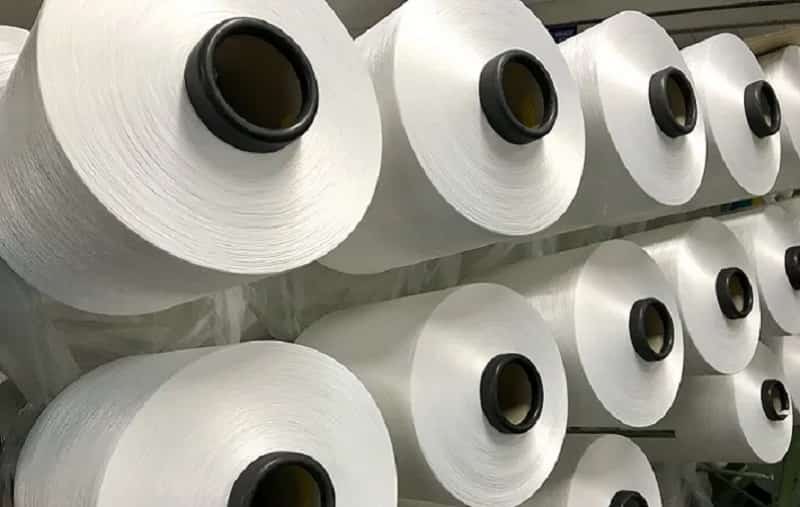
-ICIS launches the world’s first interactive global database of chemical recycling projects
Targets set by brand-owners and regulators have been contributing to a growing demand for recycled plastics globally, particularly for use in food and beverage packaging. However, supply of high-quality food grade recycled polymer material remains limited. To assist the industry in effectively securing supply of recycled resins suitable for these applications, ICIS has announced the release of the Recycling Supply Tracker – Chemical which provides FMCGs, chemical producers, large converters and retailers with the most comprehensive view of the emerging chemical recycling market.
Many industry players have public sustainability targets and need to understand the capacities in the market to ensure they can source the necessary materials to meet these. As of 2021, the global installed capacity for chemical recycling is under 2.5m tonnes, including both commercial and pre-commercial facilities with Asia Pacific and North America as the leading regions. The ICIS Recycling Supply Tracker – Chemical will provide up to date data including installed capacity, output volume, process, and feedstock, as well as details about the licensor and investors.
Chemical recycling processes can also be used to revert plastic waste back to an earlier molecular state. The ICIS Recycling Supply Tracker – Chemical has identified that, in terms of capacity, only around 20% of the global recyclers currently produce polymers as an output of their chemical recycling facilities. Renewable Thermoplastics Petrochemicals
The ICIS Recycling Supply Tracker – Chemical is updated with new projects and project developments as they happen, helping the industry understand the pace of growth in this sector. Less than 30% of projects are currently operating at commercial scale, but over half of the plants identified are expected to start-up in the next 3 years.
Louise Boddy, Head of Commercial Strategy, Sustainability at ICIS, said, “Plastic waste is one of the biggest issues facing society and the investment now going into the development of new technologies to deal with plastic waste could be a game changer in the prevention of environmental leakage of used plastic.”
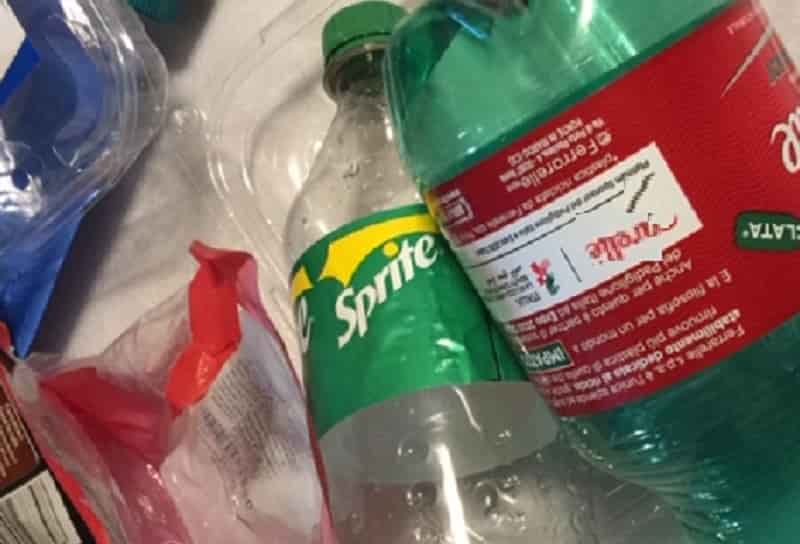
-Vietnam likely to hit $600 bn in foreign trade by 2021 end: Ministry
Vietnam’s target of $600 billion in foreign trade is likely to be met by the end of the year as the national import-export turnover had exceeded $510 billion by October 15, according to the Agency of Foreign Trade under the ministry of industry and trade (MoIT). Its import-export turnover hit more than $26 billion in the first half of October, including $13.16 billion from exports.
Four groups of commodities with an export turnover of $1 billion upwards were garments; phones and components; computers, electronic products and components; and machinery and equipment.
Vietnam earned $254 billion from exports and spent $256.45 billion on imports, resulting in a trade deficit of $2.45 billion by October 15, according to media reports from the country. Renewable Thermoplastics Petrochemicals
According to the MoIT, the monthly trade balance has gradually shifted to a trade deficit since the beginning of the second quarter, and this trend is showing signs of decreasing, with just $100 million worth of trade deficit recorded in August.
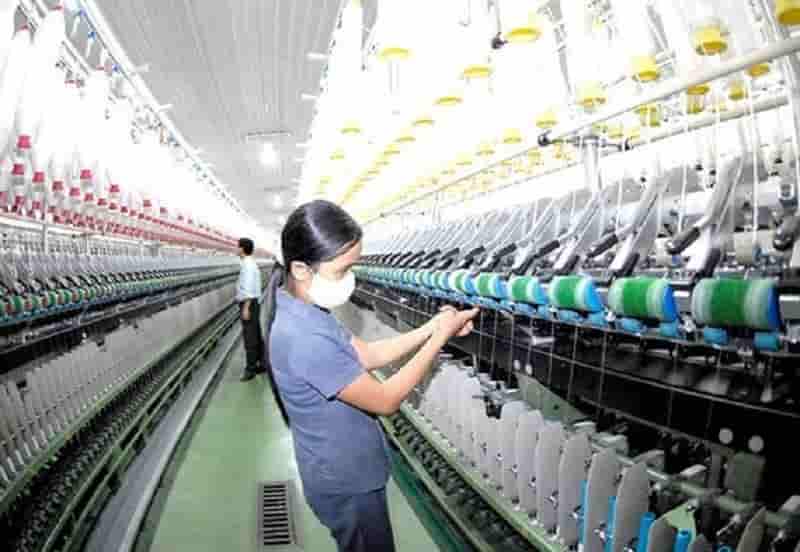
-Mixed or Contaminated Waste Plastic Recycling through Microwave – Assisted Pyrolysis
A single type of thermoplastic polymer is easily recycled through a mechanical process, but this way can’t be followed in the presence of mixed or contaminated plastic. In this case, one of the main followed solutions is a thermochemical process and among them, microwave-assisted pyrolysis is one of the emerging technologies. This chapter offers an update of the microwave-assisted pyrolysis of mixed or contaminated waste plastic as a very promising example of chemical recycling. Furthermore, some unpublished results in this field will be reported such as the pyrolysis of waste lead containing polyethylene coming from end cycle batteries or the pyrolysis of waste polypropylene from facemasks used for covid protection. Finally, some examples of pilot plants will be described and commented as well as several industrial cooperations.
The goal of realizing the conditions for achieving a truly circular economy is one of the main challenges in which scientists are involved to solve the problems concerning both global warming and the end of mineral resources. Over the last twenty years, the number of companies involved in environmental issues is continuously increasing and now almost all companies are, even in a different way, involved to solve this problem. These resources also represent a strong driving force for the development of sustainable industrial processes.
The world plastic production in 2019 was 368.0×106 tons with an increase of 2.5% concerning for 2018 [1] while in the same year the European production was 57.9×106 tons among thermoplastic and thermosetting polymers.
Among them, polyolefins are the most produced and employed materials for applications in everyday life for industrial, domestic, and technological applications [1]. They are thermoplastic polymers and are mainly used for packaging, whose life cycle is very short which means they may be disposed of in a short time after their production. A less important part of them is employed to realize furniture, insulating materials, automotive parts, and so on and their life cycle is considerably longer (ten years or more).
Polymeric materials are easily recycled through mechanical processes, as reported in Figure 1, for the production of renewed objects prolonging the life of these plastic materials, avoiding their disposal through landfilling or combustion, and reducing the use of raw materials. This is a very friendly and economic process, however, it may be applied only when a single plastic material is available or when the material is not contaminated or strongly deteriorated. In these cases, other routes such as thermochemical processes may be followed as an environmentally friendly procedure avoiding to send these materials to combustion or landfilling, so giving a contribution to realizing a circular economy and reducing the emission of greenhouse gases (GHG).
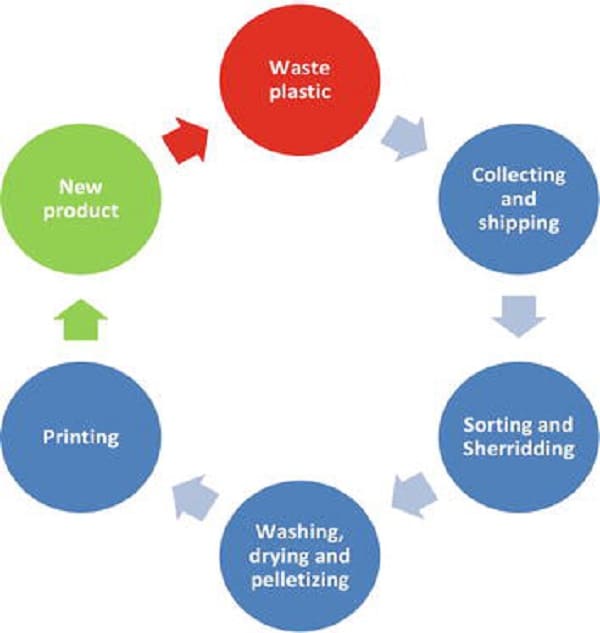
-How to deal with potential allergens contained in packaging?
In this comment piece, Miriam Jiménez Serrallé, a member of AIMPLAS’s Food Contact & Packaging Laboratory, explores the challenges of potential allergens in packaging made from plant- and animal based polymers.
Recently, consumers have started demanding more information about food allergens. Regulation (EC) No 1169/2011, which aims to protect the health of consumers and guarantee their right to information, requires the labelling of 14 groups of substances that cause allergies or intolerances. These substances are listed in Annex II of this Regulation.
Article 8 of the Regulation indicates that food business operators are responsible for ensuring that, both labelling and commercial documents relating to foodstuffs mention all substances, products and derived substances that may cause an allergy or food intolerance. Renewable Thermoplastics Petrochemicals
But should it be mandatory to declare that a material or object for food contact (FCM) contains or may contain allergens? And, if it does or may contain them, how can it be ensured they will not migrate from the packaging to the food?
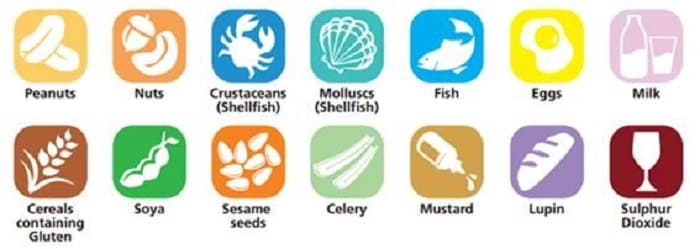
-Israeli startup UBQ to produce renewable thermoplastics for Bazan Group
Typical plastic resins are made from oil, which produces a large carbon footprint, while the UBQ solution is made entirely of household waste.
Israeli startup UBQ has reached a deal with Bazan Group’s petrochemicals subsidiary Carmel Olefins Ltd. to supply their patented “UBQ Material” – a solution that converts waste into a climate-positive thermoplastic – into their raw materials supply chain.
UBQ’s eponymously-named, patented and innovative new material is a resin that serves as a crucial component for manufacturing plastic. Typical plastic resins are made from oil, which produces a large carbon footprint, while the UBQ solution is made entirely of household waste. The Israeli company hopes its signature polymer blend is the “green” solution the plastics industry has been waiting for.
Carmel Olefins is Israel’s only manufacturer of petrochemical products that are used as raw materials in plastics, meaning Israeli-made plastics may be among the first to be produced with the full-recycled material. Bazan Group, Israel’s largest oil refining corporation outlined the group’s new sustainability strategy last July, pledging to implement renewable material in 15% of its production by the year 2025 and 30% by 2030. Renewable Thermoplastics Petrochemicals
“Bazan supplies the global polypropylene market with more than 500,000 tons of polypropylene per year, and integrating UBQ will enhance our resins’ environmental profile, driving the industry’s transition to greener initiatives,” a Bazan Group director said. “This agreement is another step towards implementing our new sustainability strategy,” added CEO Malachi Alper.
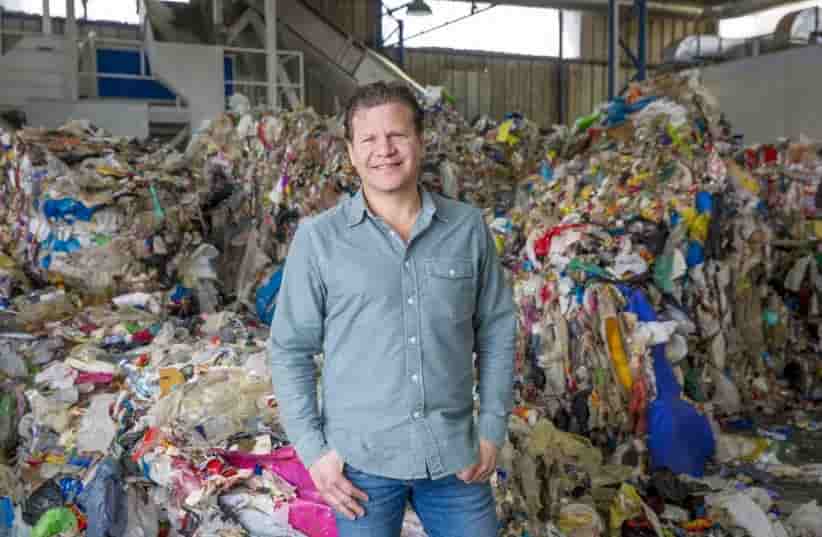
-Mideast petchem demand mixed post-pandemic; polymers upbeat
The Middle East petrochemical market has emerged mixed in its demand for key petrochemicals, as the region gradually recovers from the impact of the peak pandemic.
Uptake of some commodities remains weak as a result of COVID-19 aftermath on consumption, raw material prices, and supply chain disruptions along with extremely high freight rates – all weighing in on the pace of demand recovery.
However, some others like polymers have begun a recovery in demand buoyed by improved downstream consumption, particularly in the food packaging space.
For polyolefins, a majority of converters in Saudi Arabia and UAE export finished goods to Europe and Africa and are seeing orders.
Riyadh season is expected to contribute to improved consumption of packaged foods and beverages, propping PE and PP demand.
However, both base oils and polymeric methylene diphenyl diisocyanate (PMDI) and buyers are hesitant to pick up polystyrene imported cargo from Asia due to high freight costs.
On Middle East base oils, there is ample supply of Group I material in the UAE market and demand for higher-priced spot cargoes is slow as a result.
Production levels among the major base oils producers located in the Middle East are expected to remain stable throughout the final quarter of the year, with no verified maintenance shutdowns scheduled till December.

Renewable Thermoplastics Petrochemicals

